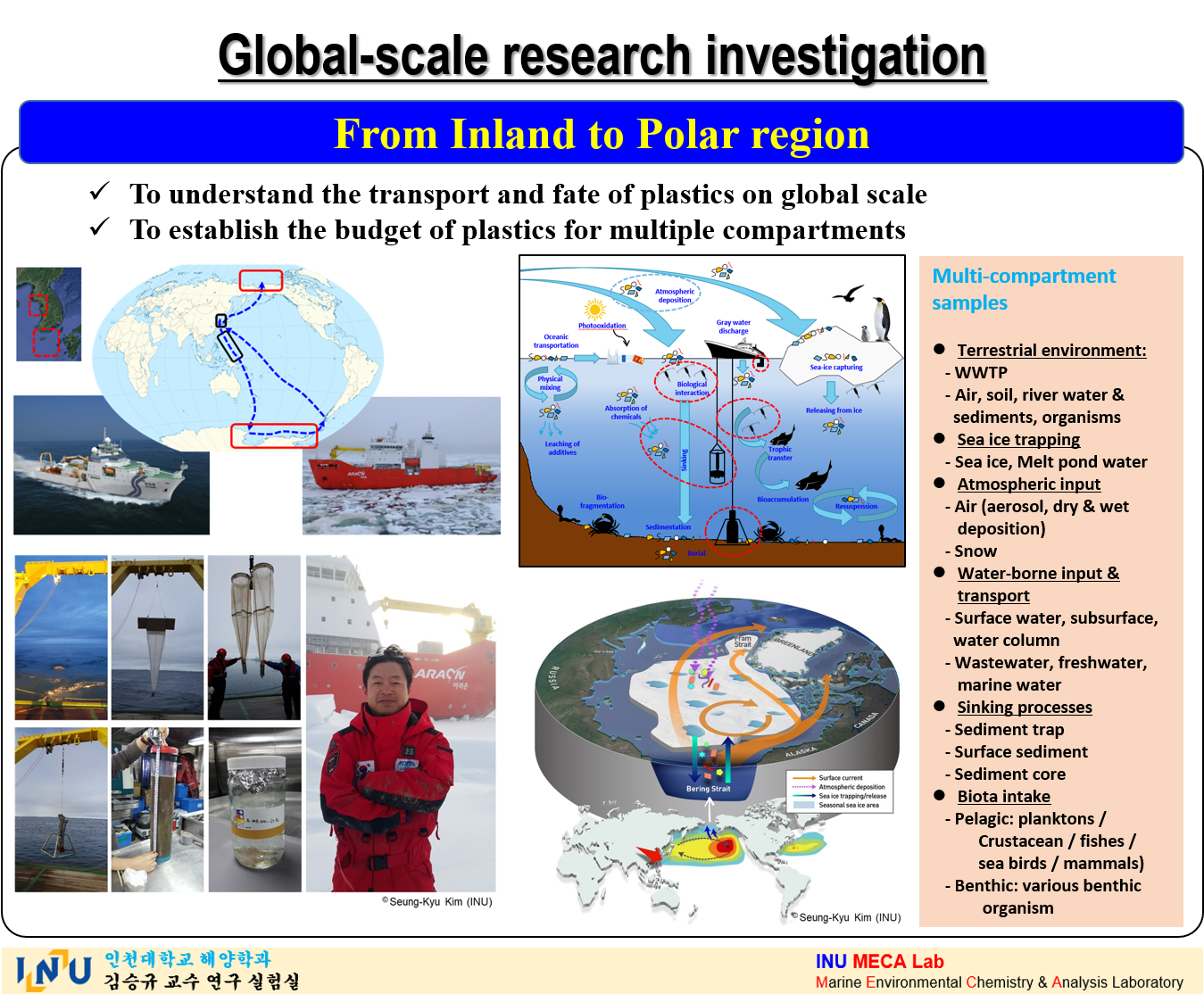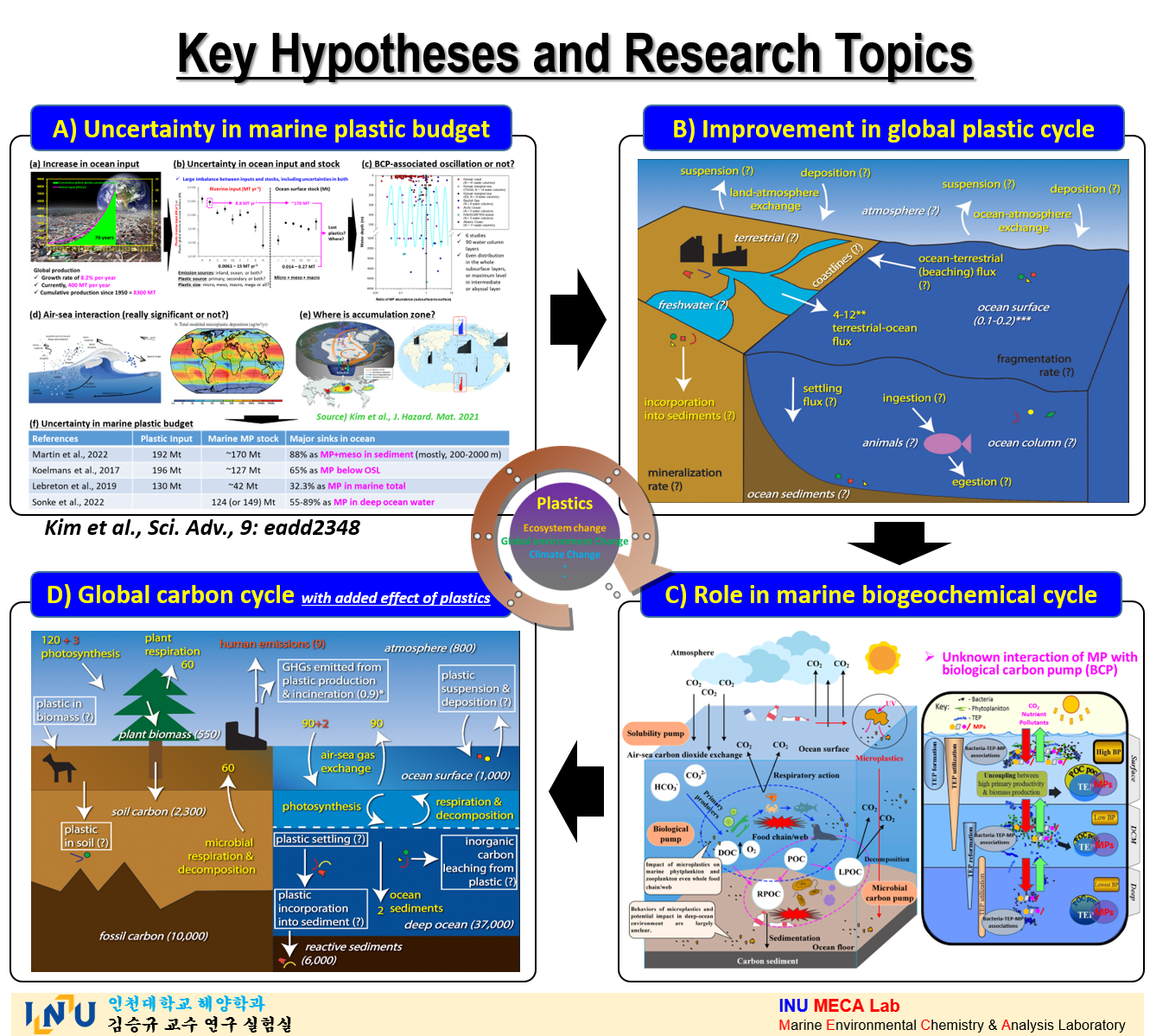분류 [Natural Sciences] Marine Environmental Chemistry & Analysis (MECA) Laboratory
- 글번호
- 392761
- 작성일
- 2024-08-17
- 수정일
- 2024-08-17
- 작성자
- 해양학과 (032-835-8860)
- 조회수
- 355
Microplastics act as serious factor disrupting the Earth's systems across various domains, exceeding their role as pollutants with ecological harm. They cause cloud nucleation and thereby radiation imbalance, deoxygenation in the ocean, impact on biogeochemical cycles of materials such as nutrients and carbon, disruption of ocean-atmosphere gaseous exchange, greenhouse gas emissions, and disruption of cryosphere melting and freezing processes.
Since 2013, our research lab (MECA) in Department of Marine Science has focused on the global impact of plastic/microplastic pollution. Our lab investigates the behavior and distribution of microplastics on a global scale, from inland systems to coastal regions, open oceans, and polar regions. We aim to establish a global marine microplastic budget and to elucidate the impacts that disrupt and destroy marine habitats and ecosystems. Recently, we have been exploring Arctic and Antarctic environments using the Korean research icebreaker R/V Araon and at polar research stations to assess the impacts of human activities in these climate change-vulnerable polar regions. Our lab has published highly influential and cited papers in related research fields, including a paper in Science Advances (Sci. Adv., 2023, eadd2348). We aim to uncover the impact of plastic pollution on and its interaction with global and marine carbon cycling in the era of climate change, to generate public interest and urge policy changes for the protection of the global environment.
Major Research Topics:
• Building a mass budget and inventory of microplastics through monitoring at a global scale, including atmospheric (aerosols, dry and wet deposition), terrestrial (rivers, sediments, soils), marine (seawater, sediments, sediment cores, sediment traps), and biological systems.
• Assessing the contribution of microplastics to global carbon cycling.
• Emissions of pollutants and dissolved organic matter due to microplastic weathering.
• Impact on biogeochemical changes and air-sea gaseous exchanges at the ocean-atmosphere interface.
• Mechanisms of transport and dispersion through the atmosphere and cloud nucleation effects.
• Effects of microplastics on biogeochemical cycles, such as biological carbon pumps, in marine environments (aggregation, fecal-pellet, marine snow, sinking mechanism etc.).
• Accumulation mechanisms of microplastics and impacts on the hydrosphere-cryosphere-geosphere-biosphere systems in pristine regions (the Arctic and Antarctic). Specifically, accumulation mechanisms of microplastics in the cryosphere and effects on melting/freezing processes.
• Impact of microplastics on nutrient cycling, biogeochemical changes, and greenhouse gas emissions in wetlands and various ecosystems (deep-sea sediments, permafrost soils).
• Future predictions through the integration of pollution monitoring data and modeling.
We are seeking motivated and proactive graduate students (master's and doctoral) interested in related research. We welcome your applications.
For contact, please reach out to Professor Seung-Kyu Kim at (skkim@inu.ac.kr).

